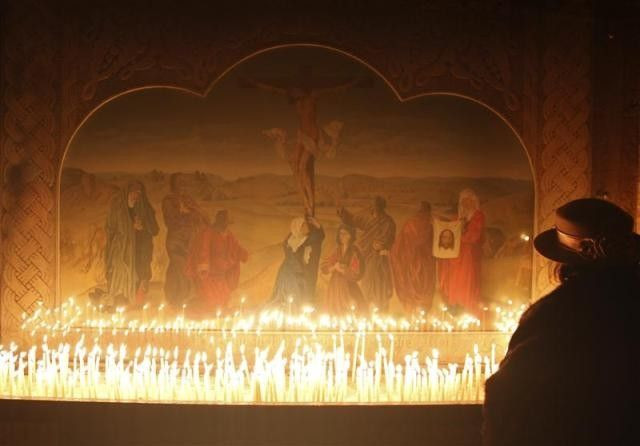The Christian Dilemma In Syria
Opinion

While the world considers the broader regional implications of the Syria crisis, the status and position of religious minorities is becoming an increasingly important issue.
Christians in Syria constitute around 10 percent of the country's population. The majority of them belong to the Orthodox Church, which has historic links and ties with Russia. This is significant not only because Russia is an ally of President Bashar al-Assad's regime, but also because it is an important trading partner. The Melkites, Assyrians and some minority protestant groups comprise Syria's other significant Christian denominations.
Historically, the majority of Christians (mainly those affiliated with the Orthodox Church) have enjoyed a privileged status under Assad, serving in important security, economic and political positions, and they have been able to practice their religion freely. That said, Christians are currently barred from serving as president.
Understandably, many Orthodox Christians fear the loss of their privileged status and position in a post-Assad Syria; others have expressed concerns about possible reprisals. The Assad regime has rather predictably played upon these fears -- reports indicate that Christians have been targeted and killed by Syrian rebel forces. Consequently, many Orthodox Christians have been reluctant to join forces with opposition groups.
Nevertheless, a growing number of Christians -- George Sabra, Fayez Sara, Michel Shammas and Michel Kilo, to name a few -- have joined opposition groups like the Syrian National Council and the Assyrian Democratic Organization, which has openly opposed the Assad regime since the initial uprising last year, a clear defiance of the official Church.
Indeed, as Sabra argued, the Christian community has not been served well by its leaders, and the Orthodox Church's hesitancy in aligning itself with revolutionary forces may be a significant strategic error as it potentially leaves the majority of Christians politically isolated in a post-Assad Syria.
Despite that possibility, Orthodox Christians and their leaders would be better served if they reached out to opposition groups, Assyrian Christians included, in advocating for a secular Syrian state that protects and respects the rights of minority groups.
Christians also need to ensure that they are adequately represented at an institutional level, both internationally and nationally. The Christian minority could be an important ally for the opposition groups, and opposition groups should be making a better effort to reach out to their Christian countrymen given the Orthodox Church's historic connections with Russia.
Why? Well, the Orthodox Church may be able to put pressure on the Russian government to support any future proposed United Nations sanctions directed against the Assad regime. (The Russians, along with the Chinese, have blocked most of the proposed UN sanctions against the Assad regime.)
Given the perilous state of the Syrian economy, foreign investment will be critical to supporting and sustaining many businesses and key sectors. Again, this gives Christian groups and leaders and opportunity to reach out to their counterparts in the west and elsewhere by advocating for future foreign aid and investment to be linked to the protection of minority rights, including Christian rights in a post-Assad Syria.
Going further, doubts abound regarding the future political prospects of Christians in a post-Assad Syria. The view from neighboring Egypt is hardly encouraging. Indeed, the parliamentary and presidential elections brought the Muslim Brotherhood and more extreme Salafi parties to power; both Christian and secular forces have raised concerns about the possibility of further Islamization of the country and active discrimination against minorities.
In the Syrian context, Christians have cards to play, but they need to be played carefully. Christians need to develop allies and push to ensure that their rights are respected and that they can live with dignity and respect. It's going to be a long and difficult path ahead, and one that few have travelled.
Samer Libdeh is a Senior Research Fellow at The Henry Jackson Society think-tank in London.
© Copyright IBTimes 2024. All rights reserved.





















